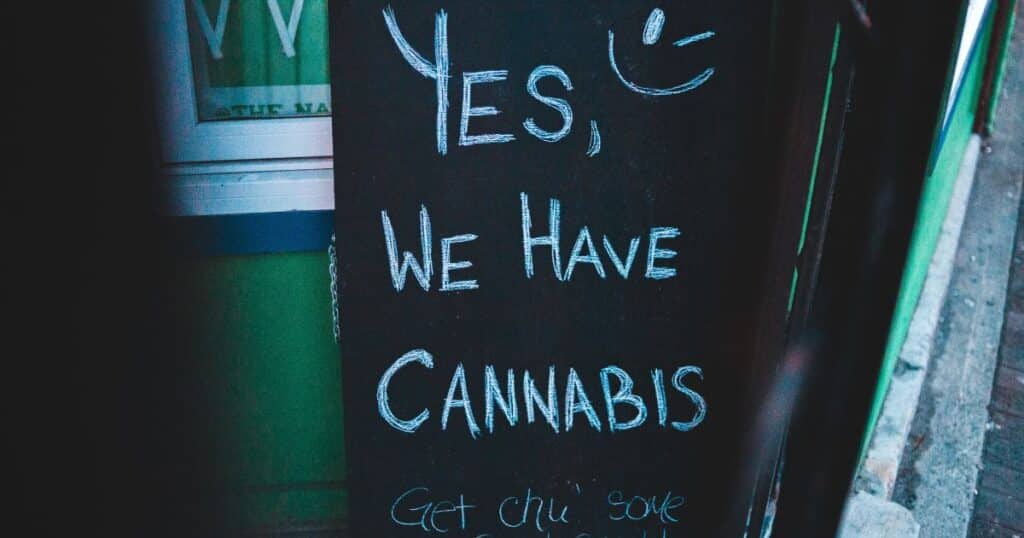In 2022, Mississippi became one of the latest states to legalize medical marijuana with the passing of the Mississippi Medical Marijuana Act. The ballot measure was approved by a majority of voters and promised new opportunities for businesses in the cannabis industry. However, one business owner has found himself in a legal battle with the state over advertising restrictions that he argues violate his First Amendment rights as reported first by the Associated Press.
The legalization of medical marijuana in Mississippi brought hope for economic growth and job opportunities, as well as relief for those suffering from debilitating medical conditions. However, with legalization comes regulations, and one of the most controversial aspects has been the restrictions on advertising for cannabis companies. These restrictions have created challenges for businesses looking to promote their products and services in the same way that other legal businesses are able to.

Clarence Cocroft II is the owner of Tru Source Medical Cannabis, a dispensary in Mississippi. After the legalization of medical marijuana in the state, Cocroft saw an opportunity to provide relief for patients and contribute to the growing industry.
However, his plans for advertising were quickly shut down by state regulations that severely limit how cannabis companies can promote their products. Cocroft and his dispensary have been unable to advertise in any media, including newspapers, magazines, radio, television, or billboards.
In response to these restrictions, Cocroft filed a lawsuit in the U.S. District Court for the Northern District of Mississippi challenging the state’s rules on cannabis advertising, arguing that they violate his First Amendment rights. The lawsuit names the heads of the state Department of Health, Department of Revenue, and Alcoholic Beverage Control Bureau as defendants. Cocroft’s attorneys argue that the First Amendment does not allow a state to completely censor a legal business and that if it is legal to sell a product, it should be legal to talk about it as well.
“All I want to do, like any other business owner, is have the opportunity to advertise. If I pay taxes in this business, which I do, I should be able to advertise,” Cocroft said. “All I’m asking from this state is to provide us with the same liberty that they’ve provided other businesses.”
In an effort to promote his business, Cocroft had initially invested in billboards that he owned and planned to use for advertising. However, due to state regulations, he was unable to use them for promoting his dispensary and instead has had to lease them out to other businesses. This not only limits his ability as a legal business owner but also negatively impacts his potential revenue.
Mississippi is not the only state that has faced controversy over advertising restrictions for the cannabis industry. Neighboring states like Arkansas, Louisiana, and Alabama also have strict regulations in place, which does not allow public advertising but Cocroft’s attorneys argue Mississippi is even more restrictive.
“Under the ban, Clarence can’t advertise in any media. He cannot place ads in newspapers or magazines, on television or radio, or even on billboards that he already owns,” said Katrin Marquez, one of Cocroft`s attorneys. “The First Amendment does not allow a state to completely censor a legal business. If it is legal to sell a product, it is legal to talk about that product.”
Equal Treatment Of All Businesses
It is clear that the restrictions on cannabis advertising in Mississippi are not only impacting the success of businesses like Tru Source Medical Cannabis but also raising questions about fairness and equal treatment under the law.
Other legal businesses, such as alcohol and pharmaceutical companies, are able to advertise their products freely. The argument being made by Cocroft and his attorneys is that if a product is legal, it should have the same rights as other legal products.
Moreover, with the legalization of medical marijuana being voted on and passed by a majority of Mississippians, it can be argued that restricting advertising for this industry goes against the will of the people.

At the end of the day, it is a legal operation that was voted on and passed. They pay taxes, and with any legal company, they should be allowed to advertise just like any other company. The current restrictions on cannabis advertising not only hinder the growth of this industry but also limit the public’s access to information about a legal product.
Calls for change in these regulations have been made by Cocroft and his attorneys, as well as other cannabis businesses and advocates in the state. The hope is that Mississippi will recognize the need for equal treatment of all legal businesses and allow for fair advertising opportunities in the future. Only then can the full potential of the medical marijuana industry be realized, providing benefits not only to businesses but also to patients in need.
Enjoyed that first hit? Come chill with us every week at the Friday Sesh for a freshly packed bowl of the week’s best cannabis news!

















